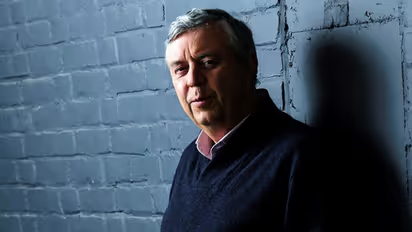Belgian Judiciary Under Fire: Unraveling the LIA Case and Allegations Against Judge Michel Claise

Synopsis
The Belgian Judiciary is facing criticism and controversy surrounding its handling of the Libyan Investment Authority (LIA) case,
The Belgian Judiciary is facing criticism and controversy surrounding its handling of the Libyan Investment Authority (LIA) case, with allegations of corruption and political motives. Judge Michel Claise, previously involved in the Qatargate case, is now under the spotlight as the LIA accuses him of "corruption" and being "politically motivated."
The LIA's Legal Action against Prince Laurent:
The Libyan Investment Authority (LIA), a sovereign wealth fund, is mounting a legal action to seek 15 billion euros seized by Belgium authorities. The LIA claims "influence trafficking," "extortion," and "fraud" in the seizure. The funds were frozen due to UN international sanctions against the former Libyan head of state, Muammar Gaddafi. The LIA accuses Prince Laurent, the Belgian king's brother, of interfering in the legal proceedings.
Conflict of Interest and Controversial Actions:
Judge Michel Claise, who was forced to resign from the Qatargate case due to a conflict of interest, is now implicated in the LIA case. Investigations for "laundering" and "breach of trust" were entrusted to Claise. The LIA is critical of the Belgian government's actions, claiming to be targeted and facing political manipulation.
Belgian Government's Involvement:
The Belgian government is facing accusations of "theft" and "mafia tactics" in violating international law and politicizing the LIA case to confiscate the funds. Prince Laurent signed a multimillion-euro contract with Libyan authorities in 2008, aimed at reforesting desert regions of Libya. However, the project collapsed with the outbreak of civil war in 2011. The LIA alleges that Prince Laurent exerted "unacceptable pressure" to claim nearly EUR 70 million owed by the Libyan Ministry for Agriculture.
Controversial Role of Judge Michel Claise:
The LIA has accused Judge Michel Claise of being "corrupt" and lacking integrity. They claim that Claise rushed to issue a warrant against the LIA's chairman, Ali Mahmoud, showing favoritism towards the Belgian prince's interests. The Libyan government is planning to sue the Minister of Justice and others involved in what they consider a "theft" and "criminal act."
Interpol's Involvement:
Interpol's involvement in the case is also questioned, as the Belgian authorities requested an international arrest warrant against Ali Mahmoud. However, the LIA objected, citing political motivations. Interpol eventually canceled the request, highlighting concerns about neutrality and political interference.
The LIA case has shed light on alleged corruption and political motives within the Belgian Judiciary. Judge Michel Claise's actions have raised questions about justice and impartiality. The involvement of the Belgian government and Interpol has further complicated the matter. As the legal battle continues, the reputation of the Belgian Judiciary and its role in international cases like the LIA remains under scrutiny.
Disclaimer: This is a featured content